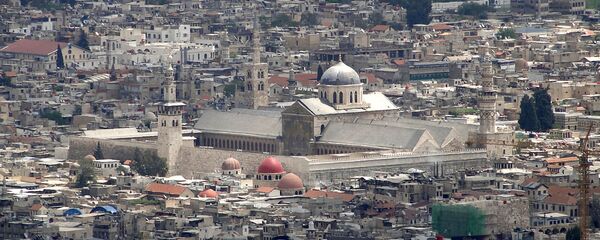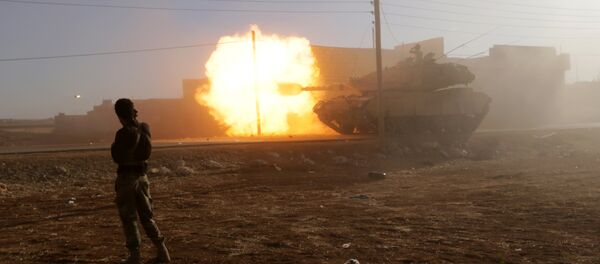However it is a strangle dispute over an obvious choice, it further says.
"With Assad [in power], we have a chance to unite and pacify if not the whole of Syria, then the major part of it. Without Assad, the civil war will turn into a war of extermination and won't abate for years to come, despite all efforts," it says.
The outlet then delves into the deeper roots of the ongoing conflict.
The divisions within Syrian society are far deeper than merely Assad's supporters and his adversaries, it explains, and they go back much further into Syria's history.
After it gained independence back in 1945, the country was marred by a large number of military coups and coup attempts. The Arab Republic of Syria came into being in late 1961 and was increasingly unstable, with a long-term stand-off between the Muslim Brotherhood of Syria and the secularist, pan-Arabist Ba'ath Party.

The Syrian Muslim Brotherhood was banned by the government of the Syrian Arab Republic after the 1963 coup. However the Muslim Brotherhood played a major role in dissent against the secular Ba'ath Party during the period 1976-1982.
Following the Hama uprising of 1982 in the wake of the wider Islamist insurgency in Syria (1979–1982), when thousands of armed insurgents and civilians were killed, the Brotherhood was effectively broken as an active political force inside Syria.
In 1982, it was Rifaat al-Assad, the younger brother of the former President of Syria, Hafez Assad and the uncle of the incumbent President Bashar al-Assad who crushed the rebellion in Hama. The battle later became known as the "Hama massacre."
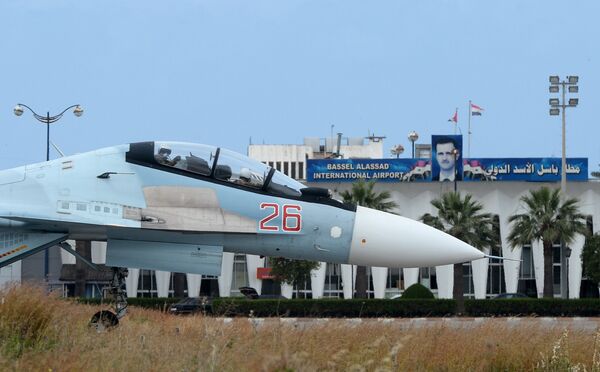
When Hafez al-Assad suffered from heart problems in late 1983, he established a six-member committee to run the country. Rifaat was not included. With the support of troops numbering more than 55,000, along with tanks, artillery, aircraft and helicopters he attempted an assault on Damascus.
However by the middle of 1984 Hafez had returned from his sickness and assumed full control over the country.
Rifaat was going to be put on trial and even faced questioning that was broadcast on television, but was later exiled abroad.
"The mercy towards the uncle of the incumbent Syrian president has been backfiring on the country ever since," the newspaper says.
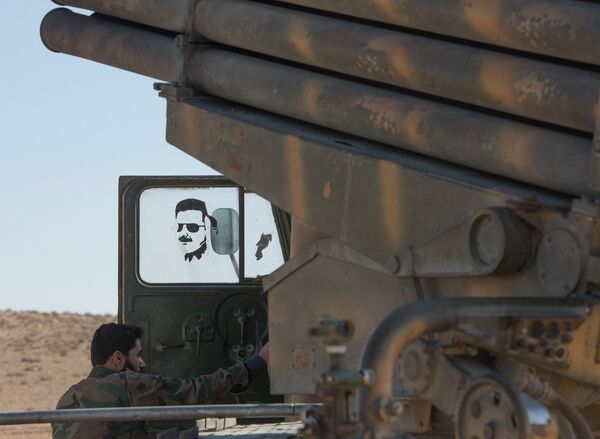
"The elderly Rifaat now resides in Europe, mainly in France and Spain and assiduously blemishes his nephew Bashar, considering him a deadly enemy," it adds.
It is Rifaat's sons that in fact control the major part of the Syrian opposition which the West calls "moderate." His eldest son Ribal has established and now leads the so-called "Organization for Democracy and Freedom in Syria."
His youngest son Sumer is the head of a pan-Arab TV channel, the Arab News Network (ANN), which is based in London and which has turned into one of the major propaganda sources of the so-called Syrian "moderates" although initially it was a political mouthpiece of the estranged wing of the Assad clan.
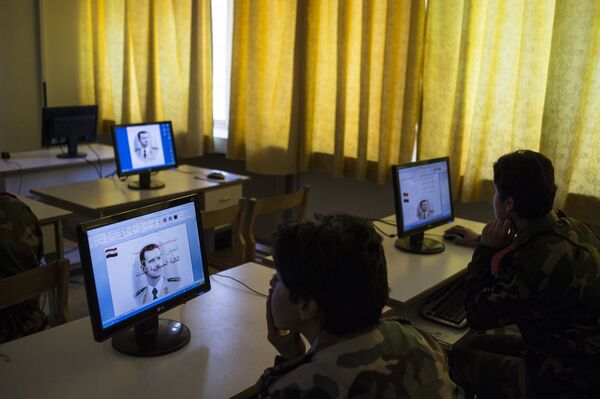
These are the very same people whom the various London-based "Friends of Syria" monitor groups associate with and the western media largely quote when reporting on the "atrocities of Bashar Assad and Russian aviation."
However, the outlet notes, Rifaat's clan is just "the tip of the iceberg" of the Syrian civil war. The religious stand-off in the country has long reached its extremities and neither of the parties involved can reach a compromise without seeing it as some kind of failure.
"By creating or trying to create lists of "trustworthy" representatives of the armed opposition, the US is looking at an ideal version of events while ignoring the practical reality that now exists," the newspaper says.
However one should understand that the government of President Assad demonstrates miracles of humanity in a war where neither side can consider itself a winner until its enemy is totally eliminated, it states.
"Idlib province has already turned into a separate state under whoever's control and this problem is yet to be solved. Eastern Syria is sagging: it is possible to retake Raqqa and advance towards the border with Iraq, but it will take years to put it in order," the outlet explains.
"The forecasts of another 10 years of war might become a reality if we back off from supporting the Assad government and his army in favor of some abstract "humanitarian interests," which have no support on the ground," it says.
In fact, it says, there are no "humanitarian interests", only ideologies in the heads of western elites. And it is this mentality and not the actions of Damascus or Moscow which turns Syrian society into the hostage of the civil war which risks becoming an endless war of extermination, it finally states.


